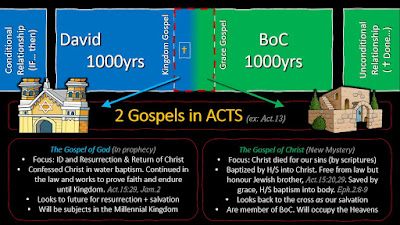Understanding functional death and spiritual life in Paul's doctrine
The reason a lot of people don’t have assurance of salvation today is because their faith has never been rooted and grounded in the first cornerstone of the Romans foundation, concerning the righteousness of God. Israel was ignorant of God's righteousness, and because of that, they continued to establish their own, Rom.10:1-4. One can distinguish a man who has placed his trust in the righteousness of God from one who has not. The man who hasn’t, is still trying to establish their own righteousness through the works of the law. Righteousness under the grace doctrine is not our own righteousness, nor our repentance, nor some religious experience we had 25 years ago. Christ is the end of the law for righteousness to everyone that believes. Our faith today is rooted and grounded upon the very righteousness of God through Christ, Rom.3:21-28.
Look at Rom.5:21: “That as sin hath reigned unto death...” How then did sin reign unto death? Through Adam's disobedience and the law of God. Let’s continue, “As sin hath reigned unto death, even so might grace reign through righteousness.” Now let’s ask, “who’s righteousness is this verse speaking of?” Yours and mine? God’s grace doesn’t reign through our righteousness, God’s grace reigns through the righteousness of His Son. You have access now to the grace of God because of Christ's righteousness, not yours. And the purpose of this grace that now reigns through righteousness is to get rid of the death that came by sin and to bring eternal life. Life and death deal with your relationship to sin and righteousness. A man that’s bound to sin is a man that’s in death. A man who cannot live unto righteousness is a man that’s dead to God. Romans 6 and 7 speaks a lot concerning death, but this is not death in the context of our physical death. Much of the context of death in these chapters is functional death, meaning that a person has no profit to God and cannot function in the spirit of righteousness and godliness.

















